Robin McKelle - Soul Flower (2012)
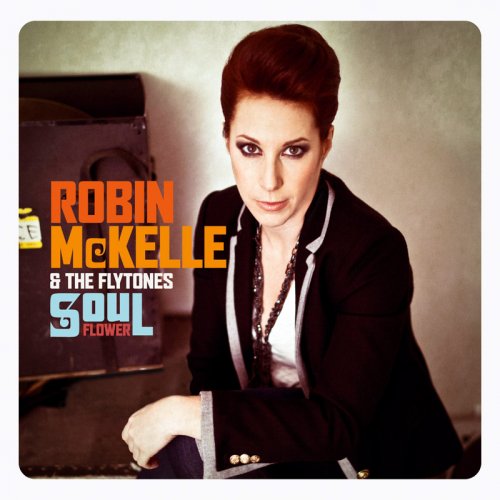
Artist: Robin McKelle
Title: Soul Flower
Year Of Release: 2012
Label: Doxie Records / Sony Music
Genre: Jazz / Vocal Jazz
Quality: Mp3 / 320kbps
Total Time: 51:00 min
Total Size: 114 MB
WebSite: Album Preview
TracklistTitle: Soul Flower
Year Of Release: 2012
Label: Doxie Records / Sony Music
Genre: Jazz / Vocal Jazz
Quality: Mp3 / 320kbps
Total Time: 51:00 min
Total Size: 114 MB
WebSite: Album Preview
----------
01. So It Goes
02. Tell You One Thing
03. Nothing's Really Changed
04. Fairytale Ending
05. Miss You Madly
06. Don't Give Up
07. Walk On By
08. To Love Somebody
09. Change
10. I'm Ready
11. Love's Work
12. I'm A Fool To Want You
Robin McKelle might have called this album The Real McKelle. “It’s the record I’ve always dreamed of making. Not that there was anything stopping me in the past, it’s simply that things panned out differently.” The singer herself wrote most of the songs on this new production, a contemporary blend of soul and rhythm ’n’ blues that avoids today’s retro tendencies. “I love that music so much that I couldn’t see myself doing something ‘in the style of…”. I grew up listening to Nina Simone and Gladys Knight. I sang their classics and what I enjoy most today is building my own repertoire in that same soulful vein.” Soul Flower mainly consists of original tracks along with a few covers, including an upbeat Walk On By.
We were already familiar with Robin’s talents as a singer - her powerful, expressive contralto voice and warm timbre that enchants audiences - but here we discover her songwriting skills and gift for devising familiar melodies that take hold immediately. The album is the fruit of her long exposure to gospel, soul and blues, and a collective achievement too. Robin McKelle insisted on recognising her associates on this album, even down to the cover credit: Robin McKelle & The Flytones. “The Flytones acknowledgment sets this project apart from my solo and previous jazz work, and also stresses the joint effort on this album with Sam Barsh (Avishai Cohen’s former pianist) and Derek Nievergelt (her current bassist). They’re from the jazz world, but they love this music. We worked on the tracks together, some even on stage when we were touring.”
Ms. McKelle’s pen dips lucidly into the ink of today’s gloomy news. Backed by Donny Hathaway’s keyboards, So It Goes is about “the increasing difficulty of people’s everyday lives and the feeling so many share that they can no longer get by, although they continue to battle on anyway.” A woman of character, the singer shows great insight when it comes to affairs of the heart. Tell You One Thing brims with Ray Charles-style orchestrations and backing vocals. The piano and guitar solos remind us of the jazz background of the album’s musicians. Fairytale Ending has a vintage, very northern-soul flavour reminiscent of the legendary productions heard back in the sixties in clubs in the North of England: a blend of Motown and Stax. Ms. McKelle’s voice unfailingly and expertly masters new dynamic or fragile tones.
Don’t Give Up is deliberately measured, like a classic blues number. A Wurlitzer and lazy organ accompany the singer’s amorous lament. On the very catchy Change - a gospel shuffle brought to the boil by drums and organ - her sincerity and commitment take us back to the sixties heyday of the protest song. “You turn on the radio in the morning, you watch TV in the evening, and all you hear is ‘crisis, crisis, crisis’. The word’s repeated ten thousand times a day, wherever you are in the world. So I’ve tried to offer a take based on real life - people’s experience, the everyday impression they have.” Still Ms. McKelle, a native of Rochester, NY, ends the session on a glamorous jazz note, with a cover of I’m A Fool To Want You (immortalised by Frank Sinatra and Billie Holiday).
The album also includes joint ventures: two duets, two encounters overflowing with emotion. On the first, she teams up with a soul veteran who, after a long absence, has returned to the limelight over the last few years: Lee Fields. “In fact, weirdly, there was all this revival - Raphael Saadiq, Sharon Jones - when I was involved in jazz. I was aching to join in. Among all the artists was one I admired more than anyone, especially after My World, his record on the Truth & Soul label. Lee (Fields) has great presence and sincerity. In the studio, when we covered the Bee Gees’ To Love Somebody (also recorded by Janis Joplin, Dusty Springfield and others), I felt such a thrill. His voice was so powerful it covered mine.”
Another high point on the album is an original number sung with Gregory Porter, a rising star of vocal jazz whose reputation has spread beyond the jazz world, like Robin McKelle’s. “I saw him in a club in New York. He was on at the Smoke one evening and I sat at the bar and loved it. He has an impressive voice and a real sensitivity too. The duet’s an unusual exercise. The aim wasn’t just to record a performance, but to build up a genuine connection for the space of a few minutes to tell a story. That story, Love’s Work, is about a couple’s relationship when they have to stand firm and keep going when things get bad.” A wonderful, subtly nuanced duet worthy of the great pioneers and featuring an irresistible melody (with brass and Wurlitzer piano to fan the flame).
Some have one life; others two or even three. During her singing career, Robin McKelle has been through more than one renaissance. She came to the public eye with a first album called Introducing Robin McKelle (2006), followed by Modern Antique (2008) - two big-band swing sessions. “I’d recorded a demo, tapes to get dates. They ended up on a record-company desk and the first album was released with all the positive spin that followed. I can’t say I have any regrets: I started touring all over the world, playing bigger and bigger venues thanks to that first album and then the second.”
Another turning point came at the start of 2010, with Mess Around, breaking with a certain classicism and exploring themes borrowed from different songwriters - Leonard Cohen, Doc Pomus, Willie Dixon and The Beatles - but especially marking a new aesthetic approach in the form of a return to roots for the native of New York State. “People accepted the transition, because they felt it was natural. I could express my personality better in that soul-jazz range. It was a sort of liberation. Today, I feel totally at ease with myself. It was a risk, but I don’t like being tied to the status quo.”
Robin McKelle had already sung soul in her first life. Influenced by her mother, a member of the church choir, the young Robin McKelle began to show her talent in R&B groups from the age of fifteen. After taking up the piano and French horn, she studied jazz at the University of Miami (1994-1996) before attending and graduating from the Berklee College of Music in Boston (1999). Moving to the West Coast, she regularly performed as a backing singer. “I learned my trade.” She subsequently went back to the Berklee College Of Music as a teacher and entered the Thelonious Monk competition in Washington, winning a prize in 2004. “Then came an uncertain time. I sang with groups, we covered hits and I performed at weddings while I waited for my moment to come.”
Now she is entering a new chapter in her eventful history without looking back. “From time to time, I think about it, but it’s all a long way off now. I feel as if I’m beginning something new with Soul Flower and I’m looking forward to winning the public over on stage.” Indeed, when she performs live, Robin McKelle’s singing talent takes on a whole new dimension.
We were already familiar with Robin’s talents as a singer - her powerful, expressive contralto voice and warm timbre that enchants audiences - but here we discover her songwriting skills and gift for devising familiar melodies that take hold immediately. The album is the fruit of her long exposure to gospel, soul and blues, and a collective achievement too. Robin McKelle insisted on recognising her associates on this album, even down to the cover credit: Robin McKelle & The Flytones. “The Flytones acknowledgment sets this project apart from my solo and previous jazz work, and also stresses the joint effort on this album with Sam Barsh (Avishai Cohen’s former pianist) and Derek Nievergelt (her current bassist). They’re from the jazz world, but they love this music. We worked on the tracks together, some even on stage when we were touring.”
Ms. McKelle’s pen dips lucidly into the ink of today’s gloomy news. Backed by Donny Hathaway’s keyboards, So It Goes is about “the increasing difficulty of people’s everyday lives and the feeling so many share that they can no longer get by, although they continue to battle on anyway.” A woman of character, the singer shows great insight when it comes to affairs of the heart. Tell You One Thing brims with Ray Charles-style orchestrations and backing vocals. The piano and guitar solos remind us of the jazz background of the album’s musicians. Fairytale Ending has a vintage, very northern-soul flavour reminiscent of the legendary productions heard back in the sixties in clubs in the North of England: a blend of Motown and Stax. Ms. McKelle’s voice unfailingly and expertly masters new dynamic or fragile tones.
Don’t Give Up is deliberately measured, like a classic blues number. A Wurlitzer and lazy organ accompany the singer’s amorous lament. On the very catchy Change - a gospel shuffle brought to the boil by drums and organ - her sincerity and commitment take us back to the sixties heyday of the protest song. “You turn on the radio in the morning, you watch TV in the evening, and all you hear is ‘crisis, crisis, crisis’. The word’s repeated ten thousand times a day, wherever you are in the world. So I’ve tried to offer a take based on real life - people’s experience, the everyday impression they have.” Still Ms. McKelle, a native of Rochester, NY, ends the session on a glamorous jazz note, with a cover of I’m A Fool To Want You (immortalised by Frank Sinatra and Billie Holiday).
The album also includes joint ventures: two duets, two encounters overflowing with emotion. On the first, she teams up with a soul veteran who, after a long absence, has returned to the limelight over the last few years: Lee Fields. “In fact, weirdly, there was all this revival - Raphael Saadiq, Sharon Jones - when I was involved in jazz. I was aching to join in. Among all the artists was one I admired more than anyone, especially after My World, his record on the Truth & Soul label. Lee (Fields) has great presence and sincerity. In the studio, when we covered the Bee Gees’ To Love Somebody (also recorded by Janis Joplin, Dusty Springfield and others), I felt such a thrill. His voice was so powerful it covered mine.”
Another high point on the album is an original number sung with Gregory Porter, a rising star of vocal jazz whose reputation has spread beyond the jazz world, like Robin McKelle’s. “I saw him in a club in New York. He was on at the Smoke one evening and I sat at the bar and loved it. He has an impressive voice and a real sensitivity too. The duet’s an unusual exercise. The aim wasn’t just to record a performance, but to build up a genuine connection for the space of a few minutes to tell a story. That story, Love’s Work, is about a couple’s relationship when they have to stand firm and keep going when things get bad.” A wonderful, subtly nuanced duet worthy of the great pioneers and featuring an irresistible melody (with brass and Wurlitzer piano to fan the flame).
Some have one life; others two or even three. During her singing career, Robin McKelle has been through more than one renaissance. She came to the public eye with a first album called Introducing Robin McKelle (2006), followed by Modern Antique (2008) - two big-band swing sessions. “I’d recorded a demo, tapes to get dates. They ended up on a record-company desk and the first album was released with all the positive spin that followed. I can’t say I have any regrets: I started touring all over the world, playing bigger and bigger venues thanks to that first album and then the second.”
Another turning point came at the start of 2010, with Mess Around, breaking with a certain classicism and exploring themes borrowed from different songwriters - Leonard Cohen, Doc Pomus, Willie Dixon and The Beatles - but especially marking a new aesthetic approach in the form of a return to roots for the native of New York State. “People accepted the transition, because they felt it was natural. I could express my personality better in that soul-jazz range. It was a sort of liberation. Today, I feel totally at ease with myself. It was a risk, but I don’t like being tied to the status quo.”
Robin McKelle had already sung soul in her first life. Influenced by her mother, a member of the church choir, the young Robin McKelle began to show her talent in R&B groups from the age of fifteen. After taking up the piano and French horn, she studied jazz at the University of Miami (1994-1996) before attending and graduating from the Berklee College of Music in Boston (1999). Moving to the West Coast, she regularly performed as a backing singer. “I learned my trade.” She subsequently went back to the Berklee College Of Music as a teacher and entered the Thelonious Monk competition in Washington, winning a prize in 2004. “Then came an uncertain time. I sang with groups, we covered hits and I performed at weddings while I waited for my moment to come.”
Now she is entering a new chapter in her eventful history without looking back. “From time to time, I think about it, but it’s all a long way off now. I feel as if I’m beginning something new with Soul Flower and I’m looking forward to winning the public over on stage.” Indeed, when she performs live, Robin McKelle’s singing talent takes on a whole new dimension.
IsraCloud : Download
![Rhythm Shaw - Nothing To Lose (2026) [Hi-Res] Rhythm Shaw - Nothing To Lose (2026) [Hi-Res]](https://www.dibpic.com/uploads/posts/2026-03/1772508812_cover.jpg)
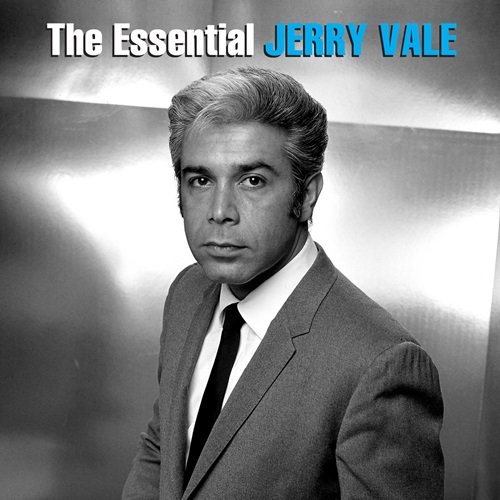
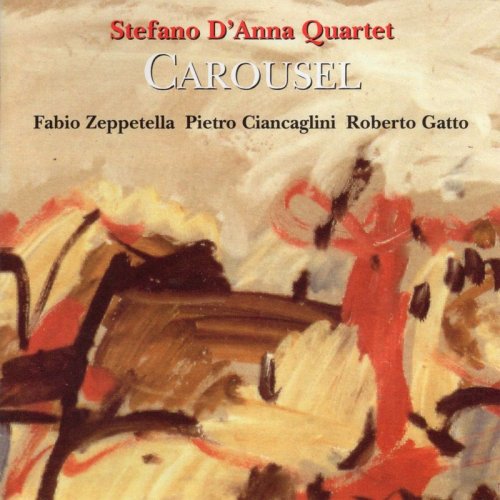
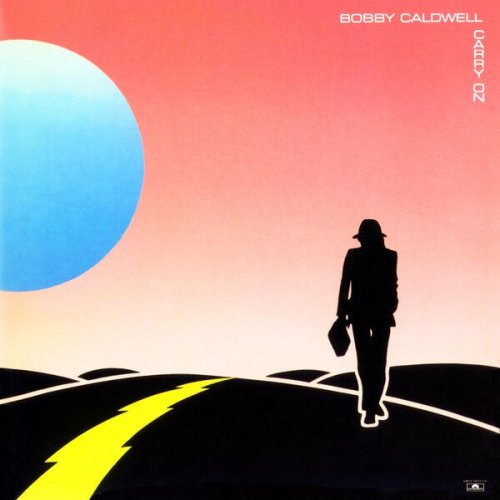
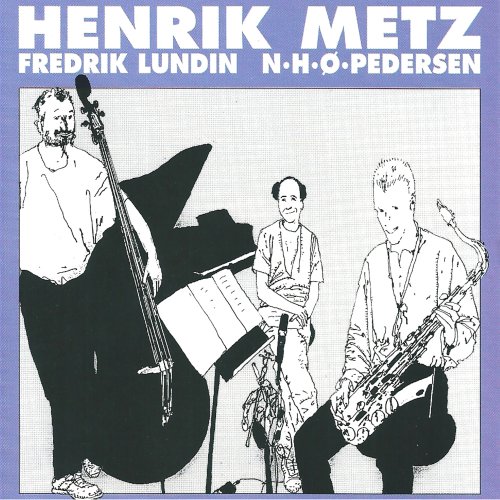
![Mammal Hands - Becoming (2018) [Hi-Res] Mammal Hands - Becoming (2018) [Hi-Res]](https://www.dibpic.com/uploads/posts/2023-01/1673772235_cover.jpg)

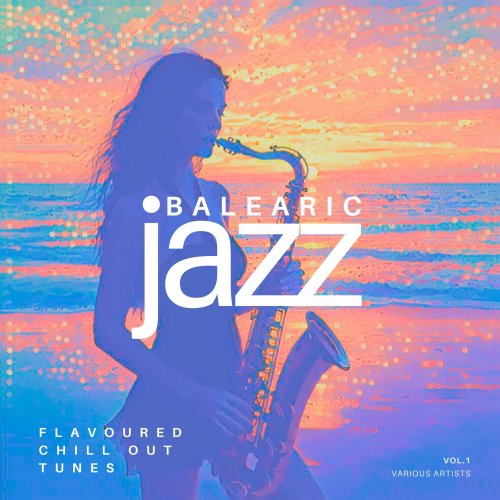
![The Voros Collective - Intercontinental Man (2026) [Hi-Res] The Voros Collective - Intercontinental Man (2026) [Hi-Res]](https://www.dibpic.com/uploads/posts/2026-03/1772344932_cover.jpg)